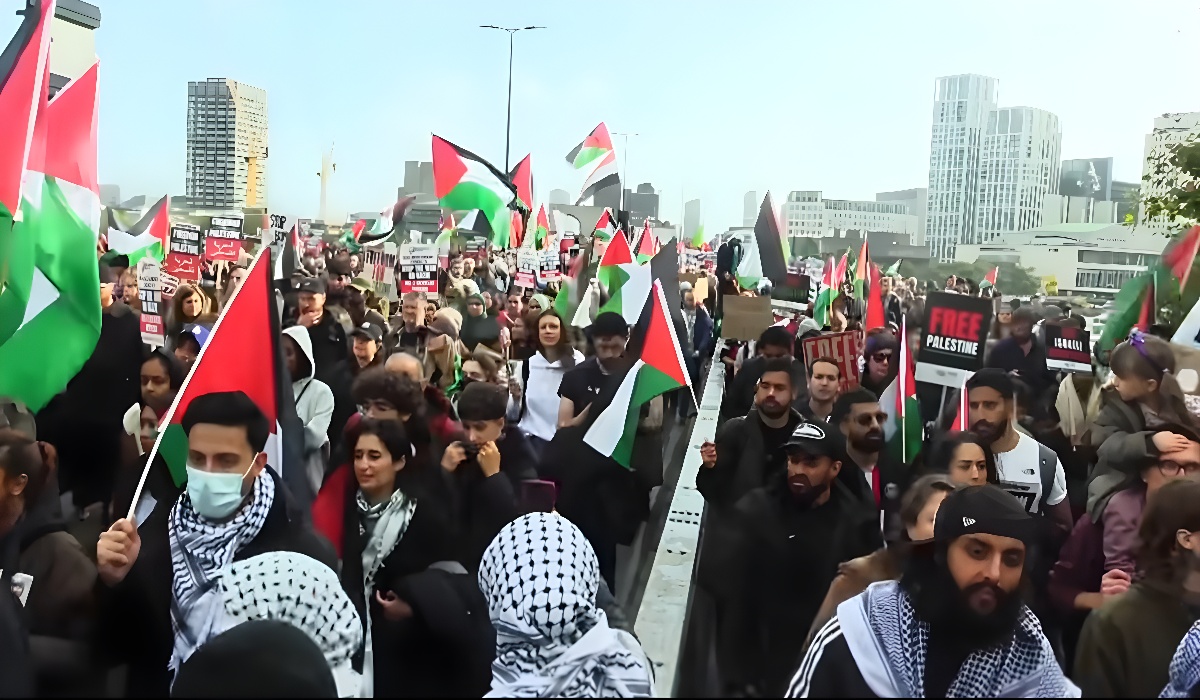Politicians’ Deaf Ears to Peaceful Protests: A Troubling Trend for Democracy
- Ingrid Jones
- Middle East
- Trending
- June 11, 2024

In a world engulfed by cries for peace, the deafening silence from elected officials is ringing alarm bells. As millions take to the streets, their chants for ceasefire in conflict zones like Gaza echo across continents. Yet, instead of heeding these pleas, politicians seem content to turn a blind eye or worse, dismiss them entirely.
The power of peaceful marches, once heralded as a beacon of democratic expression, is now called into question. Do they still possess the potency to effect change? This query hangs heavy as governments persist in their disregard for the will of the people.
The recent events unfolding in Gaza epitomize this disconnect between the governed and their governors. Despite the overwhelming demand for peace, political leaders choose to ignore the cries of their citizens, labeling atrocities as mere fabrications or refusing to acknowledge them altogether. Whether it’s branded as genocide, apartheid, or terrorism the reality remains stark: innocent lives are being lost, and the world watches in horror.
Yet, amidst this turmoil, a glimmer of hope emerges. Not only Palestinians but also Israeli citizens take to the streets, united in their call for an end to the bloodshed. They demand accountability from their own government, imploring them to do more to halt the violence.
However, the question persists: What recourse remains for peaceful protesters when their voices fall on deaf ears? Should they resort to violence, abandoning the principles of non-violent resistance? Such a path must always be deemed unacceptable.
Thus, the burden falls squarely on the shoulders of those in power. If politicians truly listen to the voices of their constituents, what does their inaction signify? It speaks volumes about the state of democracy when the cries for peace are met with indifference or disdain.

In the face of such disregard, the resilience of peaceful movements is put to the test. Their strength lies not only in the volume of their protests but in the unwavering conviction that change is possible through peaceful means. Yet, if politicians continue to ignore the will of the people, the very foundation of democracy trembles under the weight of their silence.
When millions peacefully exercise their democratic rights and are ignored, we must question whether we are genuinely living in a democracy. In nations with different forms of elected governments, there are instances where leaders heed the voices of their people, demonstrating that it is possible for governments to respond to mass mobilizations. This stark contrast raises critical questions about the true nature of democracy in countries where peaceful protests are disregarded.
The essence of democracy is predicated on the notion that the government derives its power from the consent of the governed. However, when special interests and lobbyists wield disproportionate influence, the voices of ordinary citizens are drowned out. The integrity of democracy is compromised when politicians prioritize the demands of the few over the collective will of the many. This reality exposes a disturbing trend: the erosion of democratic principles in favor of oligarchic tendencies.
This disheartening scenario is not just a theoretical concern but a pressing reality that demands urgent attention. The disregard for peaceful protests undermines the core tenets of democracy, eroding public trust in the political system. If elected officials continue to ignore the masses while catering to powerful interest groups, the legitimacy of democratic institutions is called into question.
The crisis of listening to peaceful protests is a litmus test for the health of democracy. It challenges us to reflect on the state of our political systems and the true nature of representation. As millions march for change, their voices must not be silenced. The very future of democracy depends on our collective ability to ensure that the cries for justice and peace are heard and acted upon.








